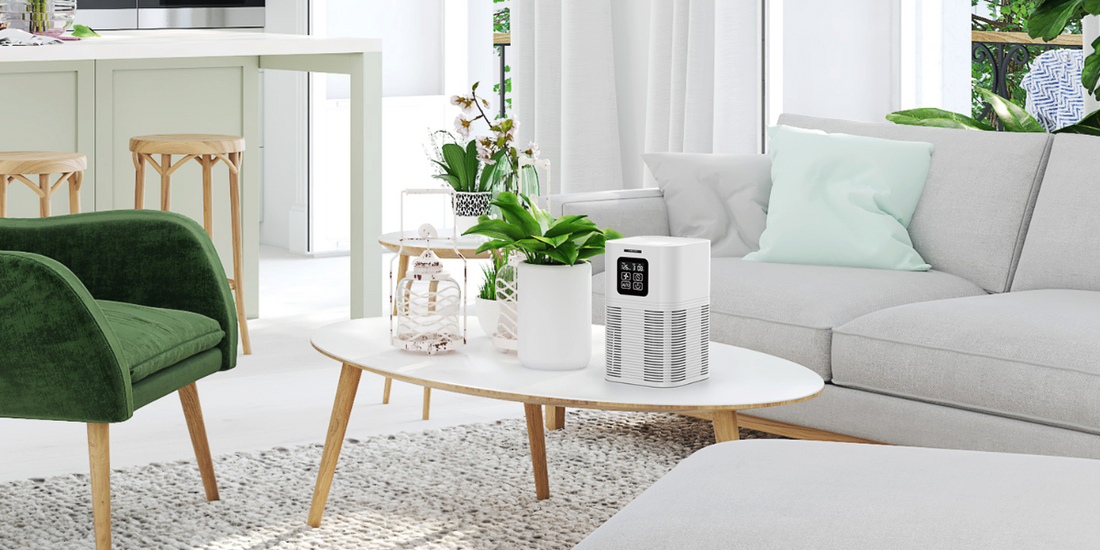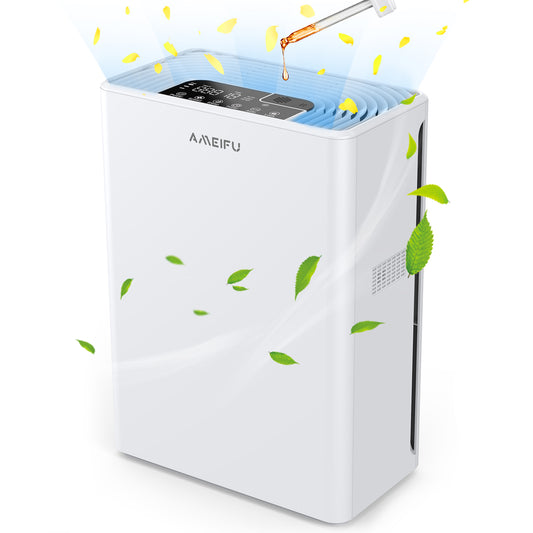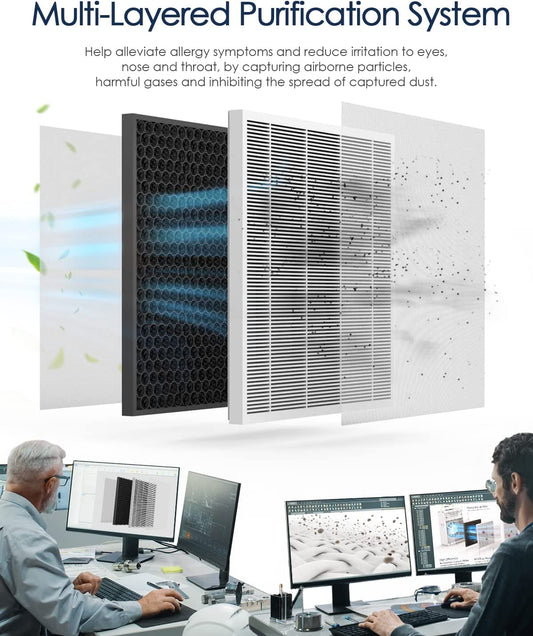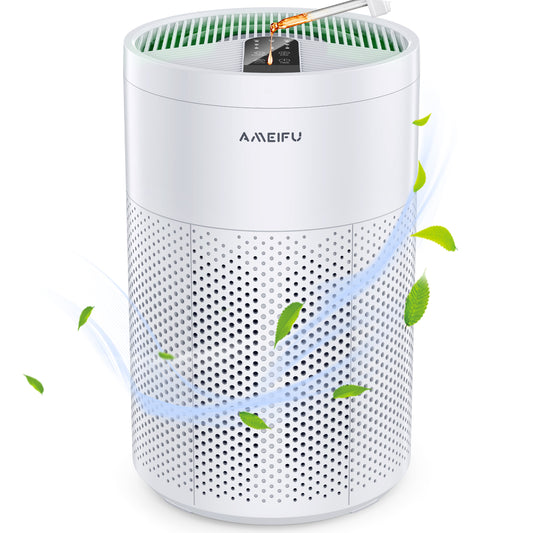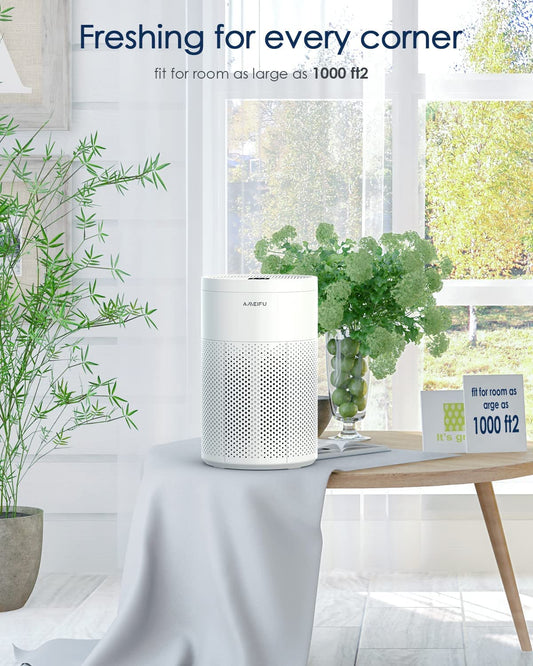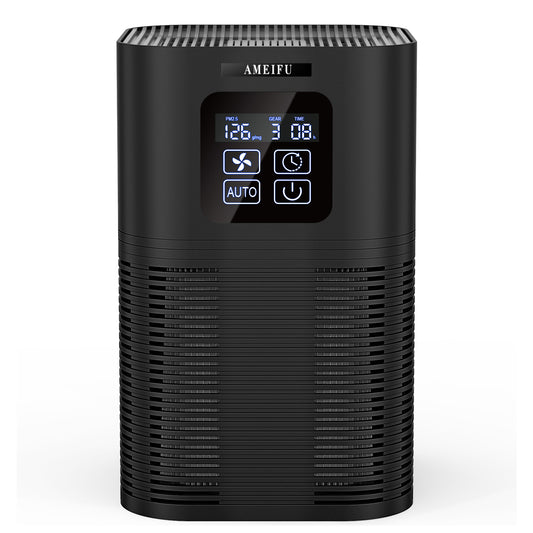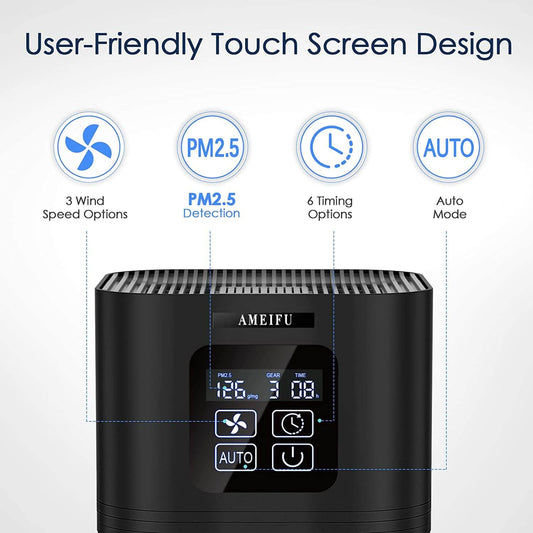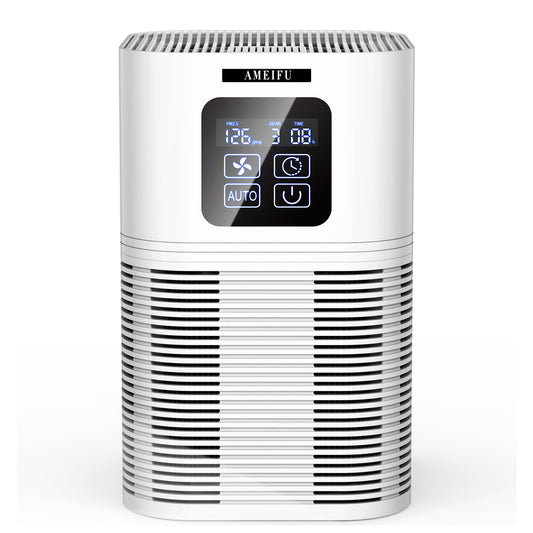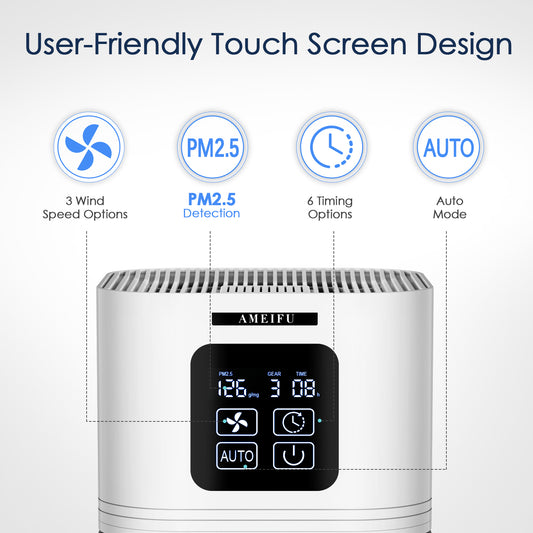Indoor air pollution is a growing concern, and people are increasingly turning to air purifiers as a solution. But are home air purifiers really worth buying? In this article, we'll explore the benefits and drawbacks of home air purifiers, the different types of purifiers available, and what to look for when buying one.
Benefits of Home Air Purifiers
Home air purifiers have several benefits that make them worth considering. First and foremost, they can help improve indoor air quality by removing pollutants such as dust, pollen, pet dander, and mold spores from the air. This can be especially beneficial for people who suffer from allergies or asthma. Additionally, air purifiers can help reduce odors from cooking, smoking, and pets, creating a more pleasant living environment.

Drawbacks of Home Air Purifiers
While home air purifiers have several benefits, there are also some drawbacks to consider. One of the main concerns is the cost. Air purifiers can range in price from under $50 to over $1,000, depending on the size and features. Additionally, some purifiers require expensive replacement filters, which can add up over time. Another concern is the noise level. Some air purifiers can be quite loud, which may be disruptive in certain settings. Finally, it's important to note that air purifiers are not a substitute for proper ventilation or cleaning. While they can help reduce indoor air pollution, it's still important to address the root causes of pollution, such as dust or mold buildup.
Types of Home Air Purifiers
There are several different types of home air purifiers on the market, each with its own set of features and benefits. Here are some of the most common types:
HEPA Air Purifiers: HEPA (High-Efficiency Particulate Air) filters are designed to remove 99.97% of particles that are 0.3 microns or larger. These filters are highly effective at removing pollutants such as dust, pollen, and pet dander.
Activated Carbon Air Purifiers: Activated carbon filters are designed to remove odors and gases from the air. These filters work by absorbing the pollutants into the filter, which can then be replaced as needed.
UV-C Air Purifiers: UV-C (ultraviolet germicidal irradiation) air purifiers use UV-C light to kill bacteria and viruses in the air. While these purifiers can be effective at reducing airborne germs, they may not be as effective at removing larger pollutants such as dust.
Ozone Generators: Ozone generators work by releasing ozone gas into the air, which can help eliminate odors and kill bacteria. However, these purifiers are controversial, as ozone can be harmful to humans in high concentrations.
What to Look for When Buying a Home Air Purifier
When shopping for a home air purifier, there are several factors to consider. Here are some of the most important:
Room Size: Make sure to choose an air purifier that is appropriate for the size of the room where it will be used. Most air purifiers will have a recommended room size listed on the packaging.
CADR Rating: CADR (Clean Air Delivery Rate) is a measurement of how effectively an air purifier can remove pollutants from the air. Look for an air purifier with a high CADR rating for the pollutants you're most concerned about.
Filter Replacement: Make sure to factor in the cost and frequency of filter replacements when choosing an air purifier. Some models may require filters to be replaced every few months, while others may only need to be replaced once a year.
Noise Level: Consider the noise level of the air purifier, especially if you plan to use it in a bedroom or other quiet space.
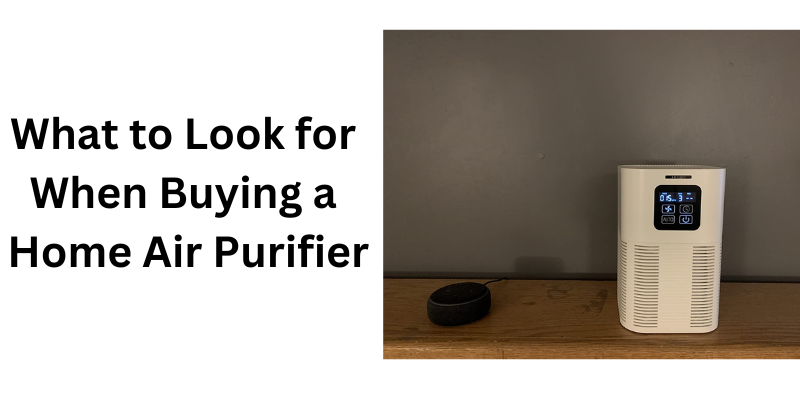
Additional Features
In addition to the basic features mentioned above, some air purifiers come with additional features that may be worth considering. Here are some examples:
- Smart Features: Some air purifiers can be controlled through an app on your phone, allowing you to adjust settings remotely.
- Air Quality Sensors: Some air purifiers have built-in air quality sensors that can detect when the air is polluted and adjust the purifier's settings accordingly.
- Multiple Filters: Some air purifiers use multiple filters to target different types of pollutants. For example, a purifier may use both a HEPA filter and an activated carbon filter.
- Energy Efficiency: Look for air purifiers that are Energy Star certified, which means they are designed to use less energy than traditional models.
Are Home Air Purifiers Worth Buying?
So, are home air purifiers worth buying? The answer depends on your individual needs and preferences. If you suffer from allergies or asthma, or if you live in an area with high levels of air pollution, an air purifier may be a worthwhile investment. Similarly, if you have pets or smoke in your home, an air purifier can help reduce odors and improve air quality.
However, if you live in an area with clean air and don't suffer from allergies or asthma, you may not see as much benefit from an air purifier. Additionally, if cost is a concern, you may want to consider other strategies for improving indoor air quality, such as opening windows or using natural cleaning products.
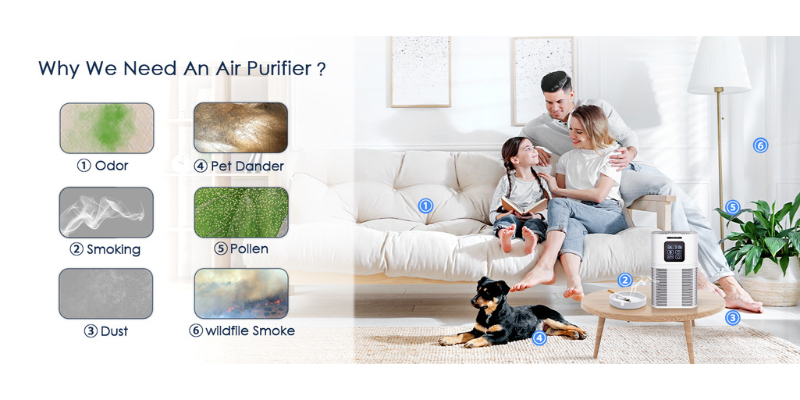
Conclusion
In conclusion, home air purifiers can be a valuable tool for improving indoor air quality and reducing pollutants in your home. When shopping for an air purifier, consider the size of your room, the type of pollutants you're most concerned about, the noise level, and any additional features you may want. While air purifiers can be costly, they may be a worthwhile investment for those who suffer from allergies or asthma, or who live in areas with high levels of air pollution. Ultimately, the decision to buy an air purifier comes down to your individual needs and priorities.

